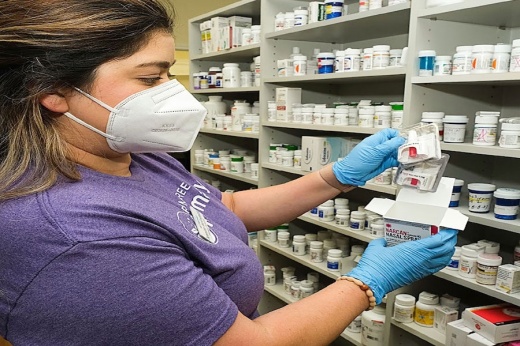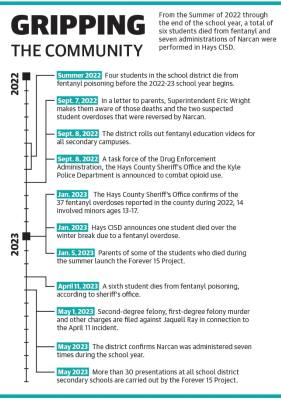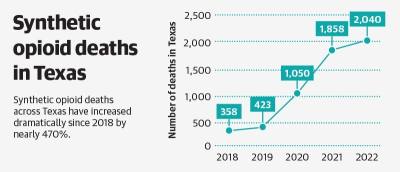In response to those deaths of adolescent students, the district increased the presence of naloxone—otherwise known by its trademark Narcan—a drug that serves as an antidote for an opioid overdose if administered within minutes of an opioid taking its effect on the body.
The drug was administered seven times this school year.
In addition to stocking up on that medicine and making it more avail able to nurses, the district took steps to educate students through multiple means of communicating the fatal danger posed by fentanyl, including educational videos and school assemblies.
“I know our district is very adamant about advocating for our students and spreading the word and education out there just to prevent it from happening further,” said Elainna Dewitt, a school nurse at Lehman High School. “As far as why it’s still happening despite all of our efforts, I think it goes back to probably mental health and addiction at this point.”
Coordinated efforts are at play to address both the mental and physical health aspects of why students experiment with opioids.
Repeating tragedies
Synthetic opioid deaths across Texas have increased dramatically since 2018 from fewer than 400 annually to more than 2,000, according to the Centers for Disease Control and Prevention.
While the six student deaths in HCISD occurred outside of school hours, of the seven times school nurses administered Narcan during the 2022-23 school year, four of those were at Lehman High School. Each required multiple doses of the overdose medicine, Dewitt said.
“We’re seeing repeat offenders. A lot of the time it’s the ones that we are already familiar with,” Dewitt said. “That’s unfortunate because we’re trying to find those resources for them.”
Dewitt said what she most hears students talking about is obtaining Percocet or Xanax. These prescription pain medications are often sold on the street in illicitly produced forms laced with fentanyl.
“I don’t know if it’s just naivety in thinking that’s exactly what they’re going to get [or] if there’s a chance they're going to get fentanyl,” she said.
Reframing legal approaches
Hays County has taken steps to prosecute drug dealers with murder/poisoning charges if they sell anything laced with fentanyl. The first such charge came May 1 of an 18-year-old who allegedly dealt to a 15-year-old Lehman High School student, resulting in the child’s death.
Criminal District Attorney Kelly Higgins said part of the issue with getting fentanyl out of the hands of young people is drug distribution is no longer a hierarchical network but more scattered and elusive.
“It’s more like a gig economy,” Higgins said. “People go to a distributor who doesn’t control them. They go into this little exchange, and then they go out and put it in kids’ hands.”
He said he is alarmed that children are taking drugs while unaware of what they really are.
“We’ve had so many children killed. They’re not just dying; they’re being killed,” Higgins said. “People are profiting by doing this.”
The Texas Legislature also considered legal changes regarding fentanyl this year.
As of press time, two bills passed regarding fentanyl-related issues and await Gov. Greg Abbott’s signature or veto; otherwise, they will become law without his signature within 20 days of being sent.
House Bill 6, authored by Rep. Craig Goldman, R -Fort Worth, would classify fentanyl overdoses as poisonings on death certificates. It was signed by Gov. Abbott on June 14.
Senate Bill 629, authored by Sen. José Menéndez, D -San Antonio, would require training in the administration of Narcan for all Texas public school teachers and school staff. That bill was sent to Abbott on May 29.
Student awareness
An effort by the school district with the newly formed nonprofit Forever 15 Project is educating students on the dangers of fentanyl and pairing that with mental health resources for all secondary students in HCISD. More than 30 presentations were given throughout May on overdose and mental health awareness.
Janel Rodriguez founded the Forever 15 Project with her husband, Brandon Rodriguez, after the loss of their 15-year-old son Noah in 2022. She said children need to hear facts without judgment.
“I was a strict parent. But I’ve learned to extend grace, and I just tell them there’s no judgment here,” she said. “That’s been my approach, just showing them love and that I’m a safe place. Kids are struggling. Kids want to be heard and helped, and they don’t know who to talk to.”








